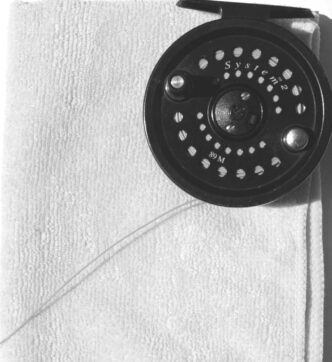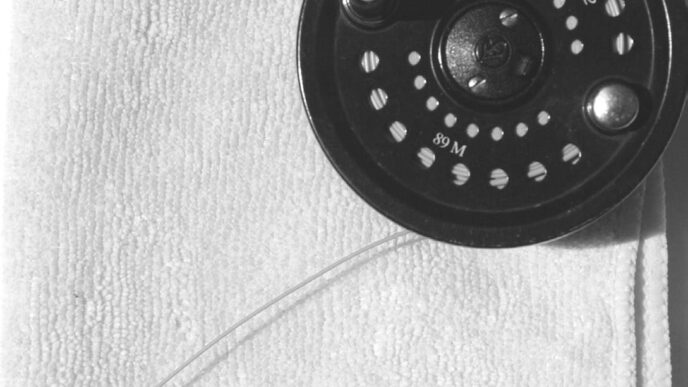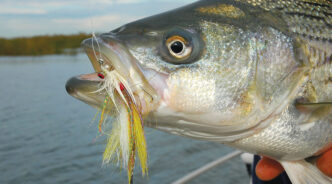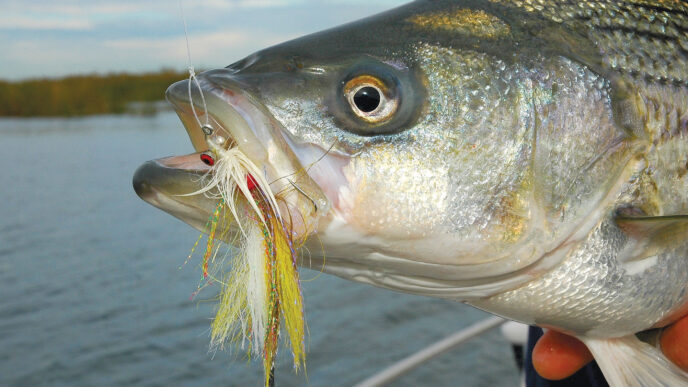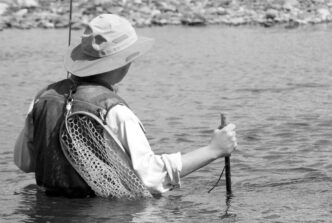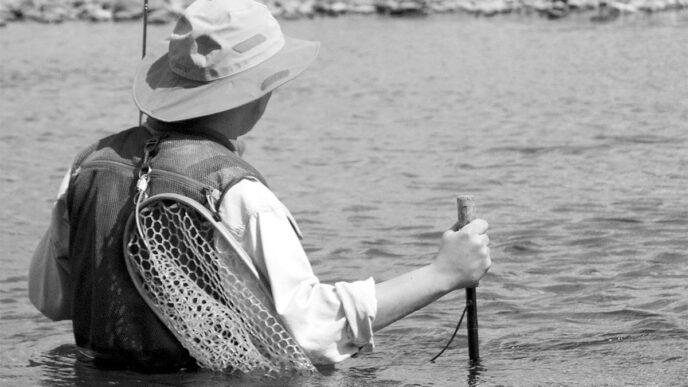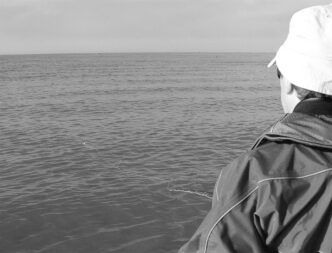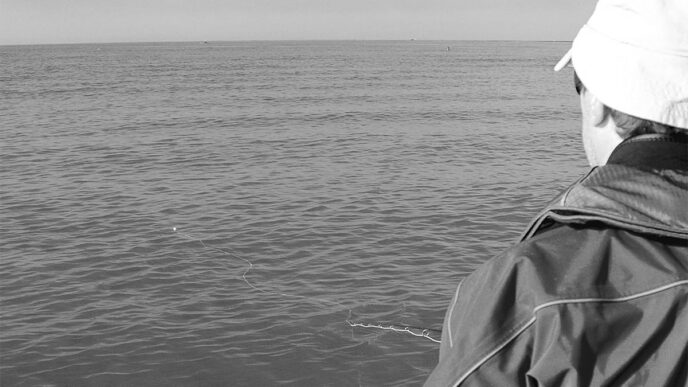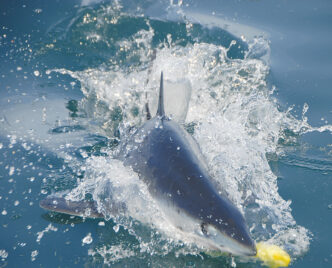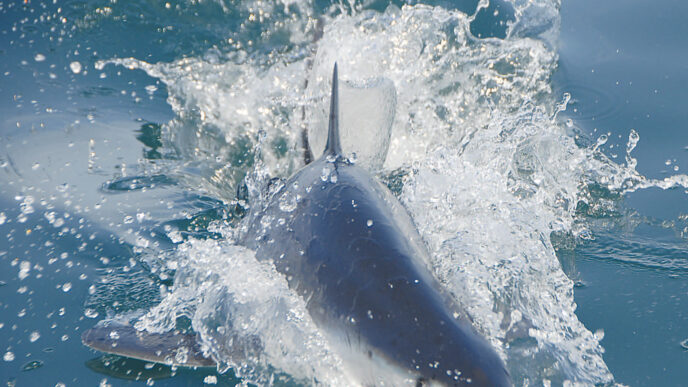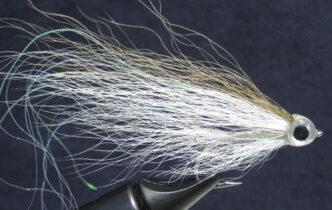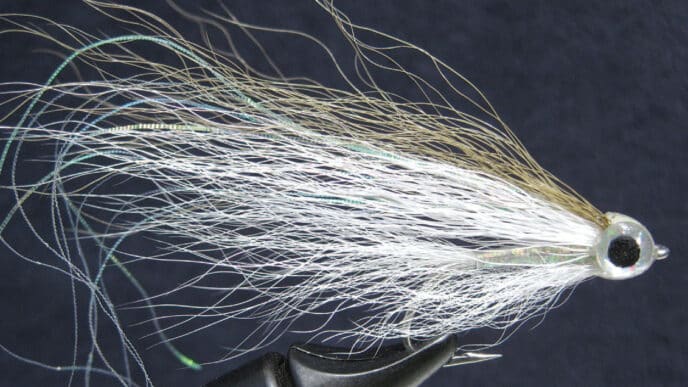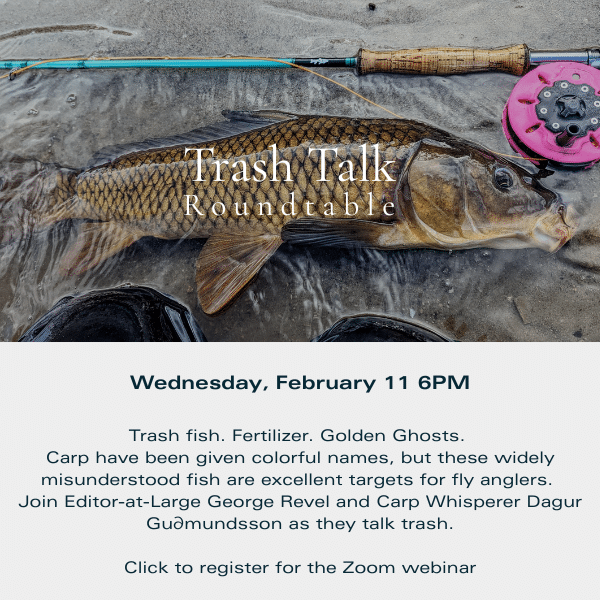In December, our daughter Teal surreptitiously announced a surprise fishing trip she was planning for her husband’s fortieth birthday. “Do you want to join us? We would love your company. You are the best parents in the world. By the way, we need a babysitter, because it’s not very close to home.”
Close to home is Northern California, where, in December, the trout fishing was proving less than stellar. The waters were at historic lows, crystal clear, and cold. The occasional trout would sullenly rise for a midge or a Baetis emerger, but most were more than willing to sulk and wait for the random egg, nymph, or chunk of rotted salmon flesh to dribble down the riverbed. Years ago, I got my fill of high-sticking blank water or staring at a bobicator drifting alongside the raft. This was exactly the kind of fly fishing about which Mike Lawson so famously declared, “I’d rather watch snow melt.”
“Not very close to home” turned out to be Louisiana. I was ecstatic. Airfares were cheap, and it would be warm, balmy, and 100 percent sight fishing, the perfect cure for what was promised to be an unusually dry and cold January in California. It got even better when a small skiff I’d been angling for over several years came up for sale in Tampa. She was 10 years old, but had suspiciously low hours, and the hull reputedly bore nary a scratch, which is rare for a shallow-water craft in the land of oyster bars and barnacled mangroves. I told Lisa, “Screw the cheap air fares, we’re going to drive the truck!” I added, as if she needed a sales pitch, “We’re going to pick up the boat, hunt the canals for snook, then slowly work our way home and fish across the entire South. Bring flip-flops, shorts, and lots of sunscreen!”
The clutch blew on the outskirts of New Orleans. We were told the repair, which would normally take only three days, might be a “little longer,” since this was the Wednesday before Martin Luther King weekend and the first day of Mardi Gras. We added a couple of extra days to the already sizable hotel bill, then explored the French Quarter, searching for a cheap place to eat. There is no such place. There are plenty of places to get a cheap drink, but solid food outside of an olive, celery stick, and cocktail onion was a scant luxury. Thanking the powers that be for inventing the American Express Card, we collapsed into a booth at Deannie’s, tossed thrift to the wind, and savored one of the finest seafood dinners we have ever enjoyed.
A few hours later, Teal, her husband JP, and baby Cash arrived at the hotel in a taxi. They hadn’t eaten since flying out of San Jose, so pushing a stroller, we returned to Canal Street and went to Deannie’s for a second helping. For the next week, we dropped all pretense of being on a diet, financially or otherwise, and voraciously ate and drank our way across a wide swath of New Orleans. It was a once-in-a-lifetime experience that I hope to repeat again, soon.
Far too early the following morning, Cash was deposited in our hotel room, along with a heap of diapers and wipes, then Teal and JP bustled off to go angling for redfish. At 9:00 A.M., a happy green message leaped from the face of Lisa’s iPhone, “Fish. Lots of fish everywhere. JP got a monster!” Lisa and I gloated — yes, this trip from the cold waters of California was going to be well worth the long and expensive drive. Just after dark, grinning like banshees and smelling of fish, Teal and JP arrived back at the hotel entrance, framed by a strong bracing wind from the north. Flag halyards were rioting against their poles, and the flags themselves were taut and snapping like racehorses at the gate. The Polar Vortex had hit the South.
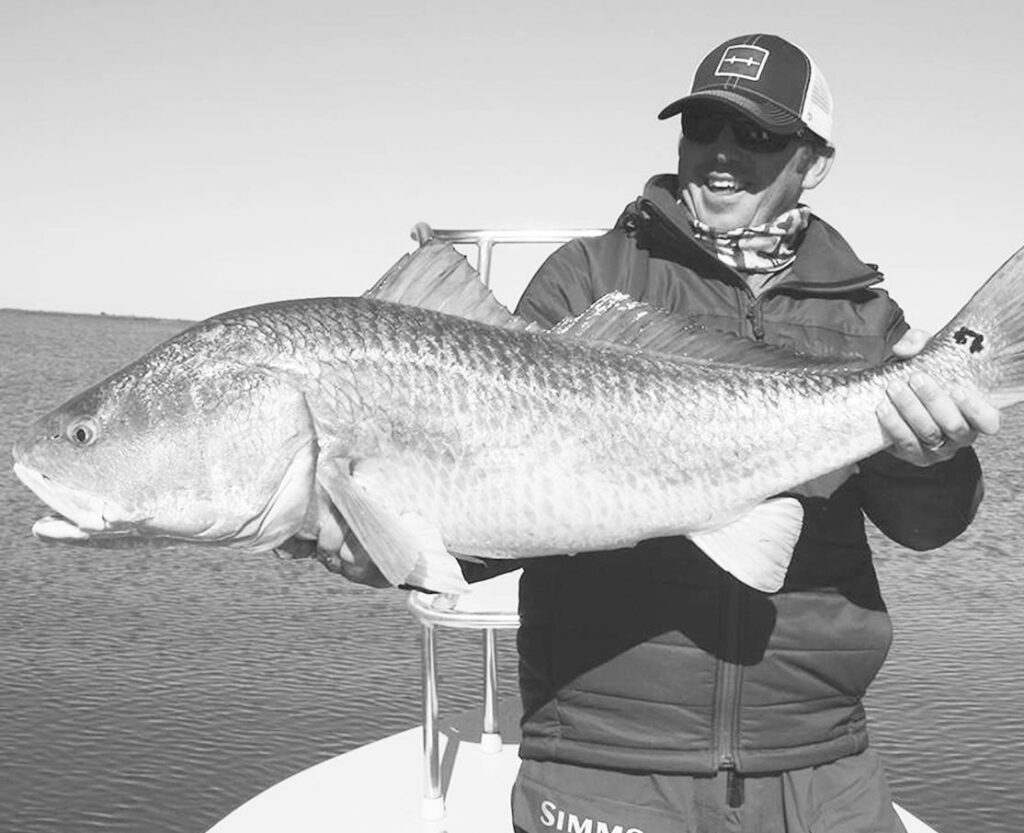
Our boat ride under the breaking dawn on the Mississippi Delta would have been a Kodak moment, except that I was too cold to take pictures and didn’t want to get wind-driven spray on the camera. We were dressed in our high-Sierra winter best of expedition-weight down parkas and Gore-Tex bibs over layers of Capilene and fleece. During the pounding ride, I vaguely recalled John Sherman once telling me that the coldest he had ever been in his life, anywhere in the world, was on the Louisiana Gulf Coast chasing redfish. I also vaguely recalled that only last night, the news had said something about a record-breaking heat wave in Northern California.
Through the chop, whitecaps, and the glare, we saw few fish. Our guide gallantly persevered, poling and tacking to and fro in the wind and seeking what shelter he could in the lee of small tufts of marsh weed. Most of the time, we made wind-whipped casts at shadows, ghosts, trash bags, and crawfish traps. The guide was insistent that they were excellent casts. During a brief lull in the wind, Lisa actually saw a fish, nailed it, and brought it to hand. I had to settle for a tug, short run, then a long-distance release. When we returned to the hotel, I didn’t smell of fish.
Two days later, I was awakened by the sound of a man’s voice inside our motel room. In the dark, I quietly groped for a weapon and found a small teddy bear next to the bed. Then an ad came on. The motel alarm clock had been set to a radio talk show, and it was time to wake up. Feeling stupid, but completely awake, with a fluttering heart, I rolled over and noticed that Lisa looked dead. A trace of blue fluorescent light leaked around the window shades and cast her pale face in a cyanotic glow. Her eyes were swollen closed and a thick goo leaked from the corners of the lids. A wisp of blonde hair was fixed to her forehead by beads of sweat. She had caught pinkeye, and there was no chance that she was going to fish this day.
JP stepped up to the plate and gallantly took her place on the boat. While the women went searching for an urgent care clinic, JP and I sought fish. It was an uncharacteristically great day of fishing. We saw many hundreds of redfish and boated our fair share. The day passed all too quickly, and as the sun was setting low, the guide started shucking mud from his push pole and told us to reel up. Seconds later, a large shadow appeared less than 15 feet off the port side. The guide dismissed it as just another of the big drums we had seen all day. He had a deep contempt for the drums and scornfully ordered us never to waste his time by casting to one. JP cast to it.
The drum nonchalantly glided forward and opened its mouth in slow motion. As it turned on the fly, its burnished coppery side glowed in the late-day sun, and a black spot the size of my fist flashed across its tail when it exploded in a rush for the Gulf of Mexico. A few minutes later, JP was holding a 28-pound redfish. It was second in size only to the 32-pounder he caught two days earlier.
The deep south was stunning. Magnolia trees, lush palmetto thickets, and ghostly cypress trees draped with folds of Spanish moss and glistening icicles painted a surreal picture. The locals marveled at the snow, and the conversation switched from how good the snook fishing was going to be to how many snook might die in the frigid conditions.
Boat in tow, we vectored westward toward what promised to be better fishing. We were in a race to beat the arrival of the next Arctic front. Near Biloxi, the winner of the race was announced when the temperature fell deep into the 20s, and then the rain fell, too. A heavy layer of ice encased the boat, the truck, and the road. Amazingly, the good folks of Mississippi, raised on a diet of Burt Reynolds and NASCAR, had no fear of the glazed highway and maintained a solid 10 miles per hour above the posted speed of 70. One by one, and sometimes in small groups, they spun off the highway with great alacrity and aplomb. We testosterone-deprived Californians sheepishly felt our way down the Interstate, took the very first exit, and found safe haven in a cheap motel. Above the check-in counter, a smiling TV anchor cheerfully announced the running tally of car wrecks and fatalities. She may as well have been narrating a football game. We pulled the boat into our driveway just in time for the first rain in two months. I was happy about the rain, but all my friends were even more happy to tell me about the incredible spell of warm weather coupled with a bumper Skwala hatch that we had just missed. They all agreed that winter fishing in California is some of the best in the country.





